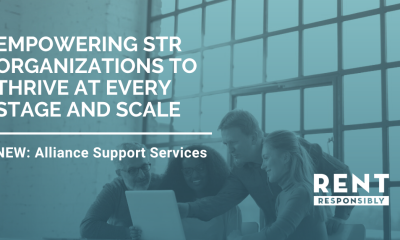
Trends to Keep on Your Radar for 2018
Keeping up with ever-changing employment laws is a struggle for all business owners. No matter the size of your business, or the number of employees you have, making sure that your company is compliant with local, state, and federal labor laws is an important yet daunting task.
If you haven’t already done so, now is the time to dust off your employee handbooks and update them to reflect changes in legislation enacted in 2017. Outdated handbooks may contain policies that could possibly violate these new statutes or regulations, exposing you to unforeseen liability.
This past year has been a busy one for legislators, especially for those at the state and local level. During the last year, there have been several laws passed that may directly affect your workplace policies and employee handbook at a more local level.
Heading into 2018, there are several trends in employment law that could potentially impact your business. Even if the following changes haven’t been enacted in your state yet, don’t breathe too easy. At the rate things are going, it probably won’t be long before one or more of the following trends are affecting your state and local regulations.
Here are some key employment law trends and policies to be aware of:
#MeToo: Sexual Harassment Policies
Sexual harassment cuts across all industries, as recently evidenced by the #MeToo social media hashtag. Matt Lauer, Harvey Weinstein, Bill O’Reilly, Roger Ailes, Kevin Spacey, and many others have become embroiled in workplace harassment allegations at a rate we have never seen before.
How you handle a sexual harassment complaint or even a whisper of one can have a considerable impact on your organization. Failing to take the appropriate action at the right time comes with a steep price. Think about the damage to your reputation, your brand, your culture, and your ability to attract and retain employees. The cost of dealing with a sexual harassment charge is far greater than just the financial impact.
If you don’t yet have a sexual harassment policy, now is a good time to formalize one. If you have a policy that hasn’t been reviewed in a while, revise it now by adding examples of what is considered unacceptable behavior and what the consequences are for individuals who violate the policy.
It is now more important than ever that you train your employees about sexual harassment and that inappropriate behavior will not be tolerated. Providing additional training for your supervisors and managers is key to ensuring that no complaints, or whispers of complaints, go undetected.
You can find more information and facts about sexual harassment at the following websites:
“Ban the Box” Fair Chance Policy
Twenty-nine states, representing more than 150 cities and counties nationwide, have adopted what is widely known as “Ban the Box,” a part of the more comprehensive Fair Chance Policy. The intent behind “Ban the Box” is to provide applicants with a fair chance to be interviewed by removing conviction questions from the job application and delaying the background check until later in the hiring process. This doesn’t mean that you can’t ask about convictions, it just means you should wait until a conditional offer of employment is made and a background check has been completed.
Using conviction information fairly is the backbone of an effective Fair Chance Policy. Simply stated, you should make your assessments based on individual circumstances instead of broad categories of exclusions. For example, if you are hiring an individual who had a conviction for shoplifting eight years ago, it is important to consider the length of time since the offence and the relevance to the position, rather than disqualifying the applicant because you “don’t hire anyone with prior convictions of shoplifting.”
The following are some best practices to consider regarding “Ban the Box” and/or implementing a Fair Chance Policy:
- Remove inquiries about convictions from your job application. If you are using an automated recruitment system, be sure to remove any questions from the online application process as well as from any paper applications.
- Remove self-reporting questions about conviction history. The best approach is to confirm any convictions with a background check.
- Background checks. You do not want to take into consideration any records of arrest that were not followed by a valid conviction.
- If an applicant is rejected based on a conviction record, inform the applicant in writing. Background reports, just like credit scores, can be inaccurate. Be sure to provide time for the applicant to verify or challenge the information.
Equal Pay and Wage Discrimination: Banning Salary History Inquiries
Asking for current or prior salaries on applications, or asking applicants during an interview about their salary history, is now off-limits in several states. Over the past year, many states and cities have significantly expanded their equal pay provisions to promote wage transparency and pay equity to close the wage gap.
The Equal Pay Act requires that men and women working in the same company be given equal pay for equal work. The act refers to positions with the same scope and responsibility, not necessarily the same job title. It is a good practice to complete internal salary studies on a regular basis to determine if there are any instances of pay inequity in your organization. Pay equity includes all forms of pay, including things such as salary, bonuses, life insurance, and allowances for gas, phones, travel expenses, and other benefits.
Another law to be cognizant of is the National Labor Relations Act, which protects employees’ rights to discuss their salaries and wages with other employees. If you currently have a policy that restricts employees from talking about their wages, now is the time to remove it from your handbook or associated policies.
While none of this is “new” news, it is becoming more front and center and something to pay close attention to over the next twelve to eighteen months.
Protected Sick Leave Laws
It is important that your employee handbook policies and employment posters reflect the latest federal, state, and local leave laws. As you review your leave policies, pay attention to recent leave laws enacted for paid or protected sick leave. While federal law doesn’t require private employees to pay sick leave, there is a fast-growing trend at both the state and local levels to provide this benefit.
You can find more information and facts about paid sick leave at The National Conference of State Legislatures website.
In addition to reviewing your state leave laws, make sure your employment posters are up to date as well. Some states require you to insert certain notices with regard to leave into your employee handbooks. You can find more information on what posting requirements you should comply with at the US Department of Labor website.
Addressing Violence and Weapons in the Workplace
Workplace violence is an issue that can affect any organization, of any size, in any industry. Are you aware that the Occupational Safety and Health Administration (OSHA) requires you to provide a safe work environment for your employees? It’s true. Under the general duty clause, OSHA states that preventing and dealing with violence in the workplace is your responsibility.
Workplace violence includes much more than just the physical assaults with weapons we hear about so often in the news. Spreading rumors, swearing, verbal abuse, pranks, bullying, sabotage, theft, physical assaults, psychological trauma, and anger-related incidents are all examples of workplace violence. It is good practice for businesses to have policies in place to prevent workplace violence, addressing the actions referenced above.
news. Spreading rumors, swearing, verbal abuse, pranks, bullying, sabotage, theft, physical assaults, psychological trauma, and anger-related incidents are all examples of workplace violence. It is good practice for businesses to have policies in place to prevent workplace violence, addressing the actions referenced above.
Although there is no federal law that regulates weapons in a private workplace, several states have enacted laws that specifically apply to employers with regard to carrying concealed weapons that include prohibiting the possession of certain weapons on their private property. As more states move to adopt or strengthen concealed-carry laws, employers need to keep pace with changes in the law and how they might affect the workplace.
For more information on this topic, Reed & Scardino Attorneys at Law have an informative brief titled “Providing a Safe Workplace When Employees are Licensed to Carry” on their website.
Changes in employment laws are relatively frequent. It is important to keep abreast of changes in the law at the federal, state, and local levels. Being informed about what’s on the horizon with regard to changes in the law, as well as any changes in best practices, is key. While the trends listed above may not be on your radar yet, they very well may be in your employee’s line of sight.
Here are some general steps you can take now to ensure you are in compliance and proactive about upcoming changes in employment laws:
- Visit Your State Labor Office Website
- Conduct an HR Assessment. HR assessments can help identify whether your HR practices or processes are adequate, legal, and effective.
- Update Your Employee Handbook. The best practice for employers is to update their handbooks on an annual basis to ensure that their employee handbook is compliant with current laws.
- Conduct a Salary Survey for Your Positions. Start being more transparent about how pay is determined in your company. A salary survey can assist you with determining internal and external equity, ensuring that your compensation is fair and consistent across the organization.
- Provide Sexual Harassment Training. Be proactive. Training employees provides more awareness about the types of activities and actions that are considered unacceptable and can get them into hot water. Face-to-face training is the best approach to ensure that the message is received and understood.
- Update Employment Posters. Laws are constantly changing; don’t be caught off guard. Visit the Labor Law Center’s website for specific posting requirements by state.












RSS